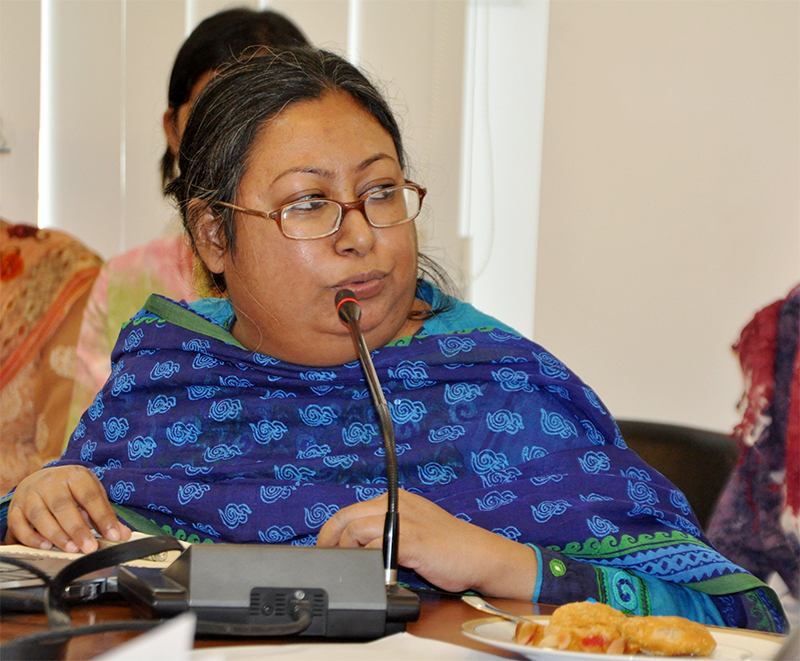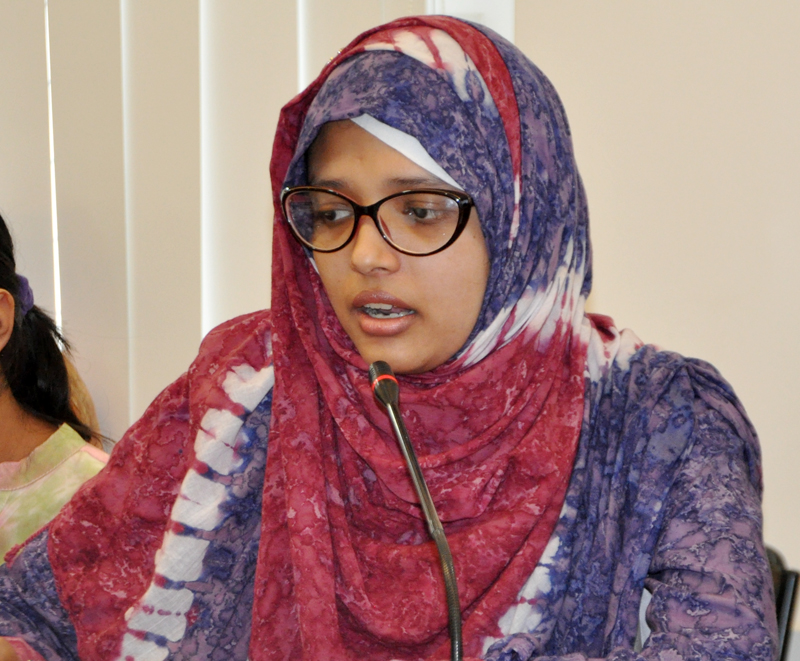For organisational success, change is inevitable, which requires improved monitoring and evaluation system in management, as well as updated database in order to uplift the growth-based prospect. The readymade garments (RMG) is viewed as one of the growing industries in Bangladesh. Theory of change in respect of monitoring, evaluation, accountability and learning (MEAL), and the need for database improvement in Bangladesh RMG enterprise – were the topics of YSSS presentation held on 17 August 2017 at CPD Dialogue Room.
Monitoring & Evaluation for Organisational Accountability & Learning – Ms Nazmatun Noor
‘Data Universe’ of Bangladesh’s RMG Enterprises: What is Available? What is Required? – Ms Marzuka Ahmad Radia
At this YSSS session, CPD professionals gave two presentations. Ms Nazmatun Noor, Deputy Director, Publication, in light of her know-how experience from the Training Workshop on “Excellence in Change and Impact Evaluation: Monitoring, Evaluation, Accountability and Learning,” held at the UNESCAP Headquarters in Bangkok during 18-20 July 2017, presented on MEAL methodology for project design. Ms Marzuka Ahmad Radia, Research Associate (Project), presented on an ongoing study titled “‘Data Universe’ of Bangladesh’s RMG Enterprises: What is Available? What is Required?”

The workshop that Ms Noor attended, was organised by the Sustainable Development Policy Institute (SDPI) and Think Tank Initiative (TTI), and 18 participants from think tanks of the region and UN professionals participated there. While sharing her experience, Ms Noor brought forward how MEAL emphasises on the components of a project design – data collection, information sharing, and evaluation. She clarified the outcome framework which is known as the theory of change in management system, and how theory of change is effective to engage stakeholders and exercise accountability. Also, reflections were put on significance of contribution rather than impact.

Ms Marzuka Ahmad Radia, in her presentation, figured out the numbers of the operational and non-operational enterprises, and the observation on growth rate of the RMG sector on this basis. In her presentation, she highlighted significant issues including national-level survey of manufacturing industries, concept of harmonised dataset, characteristics features of RMG enterprise under the data universe, key observations to improve the data quality, and a set of recommendations targeting the stakeholders in this regard.
The in-house seminar was followed by extensive and interactive Q&A session in order to illustrate a variety of relatable discussions for the CPD professionals. Whilst senior researchers and professionals participated in that intensive discussion, thought-provoking points like differences among output, outcome and impact, evidence-based change, authenticity of data collection, relevance of the topics to think tanks, etc., were shed light upon.


